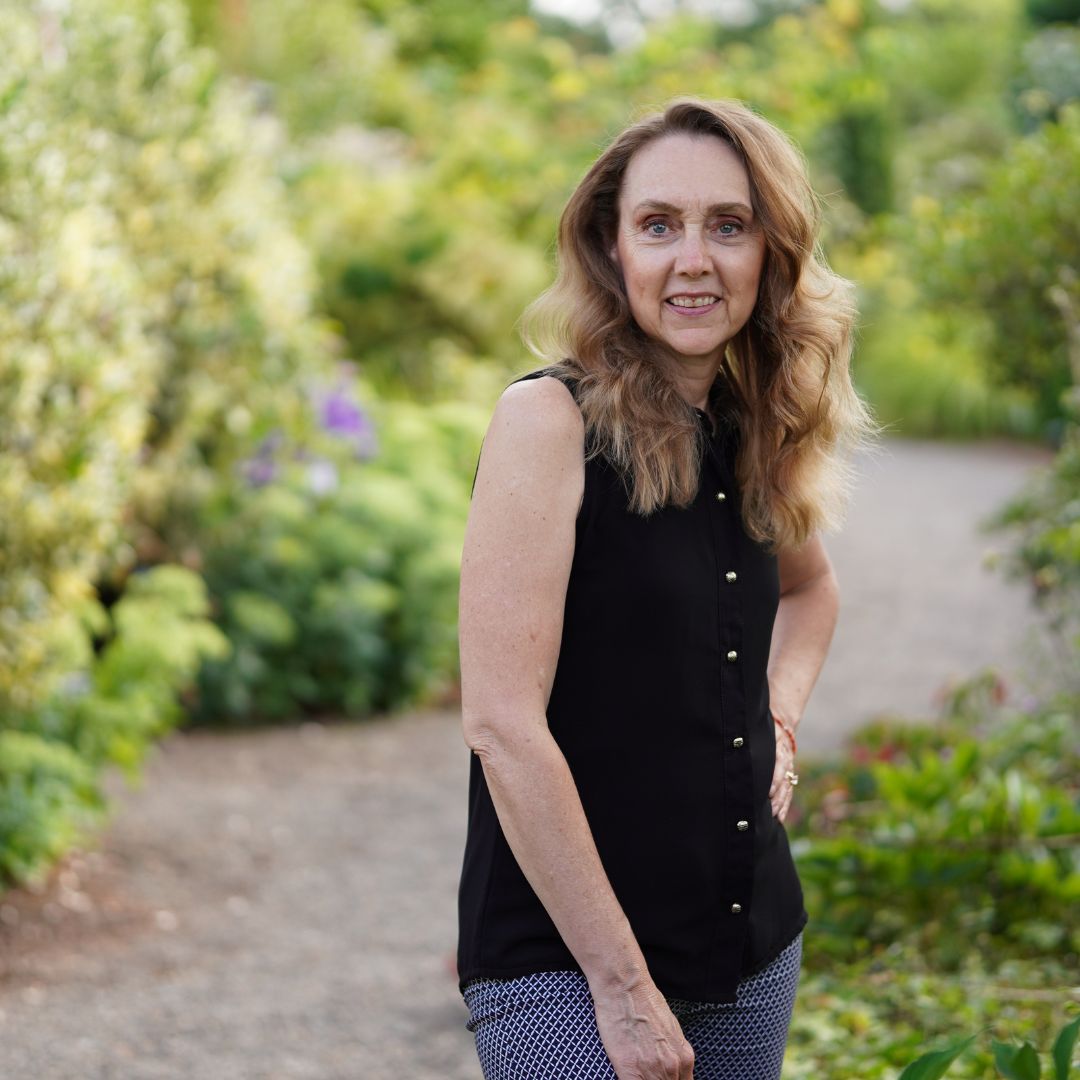I have an unconventional approach to wellness.
Maybe it started when my Dad died of a massive heart attack at the age of fifty-four. I started asking “why,” and it’s led me down some unbelievable paths.
It might have started when my daughter declared herself vegetarian at three. I had to look at our food supply, ask questions about protein, and rethink every approach to eating.
When I started my own journey to vegetarianism, veganism, and turning to a plant-based diet, I furthered my knowledge of what wellness really means.
And then there’s menopause. Health insurance. Covid. Oh, so many things from the past few years that have swayed what I believe about wellness.
I have a lot of heroes I’ve followed these past couple of decades, people I’ve learned from and celebrate their teachings.
One of the earliest is John Robbins and, later, his son Ocean Robbins. They run a site called the Food Revolution Network, one I’ve followed for years.
As I sat down to write my post today, an email arrived in my inbox from Ocean. Just one word was in the subject line – Malnutrition. Of course, I clicked. I highly suggest you read it.
In short, he states: Malnutrition is the number one cause of death in our society today. And it’s on the rise.
Does that stop you short? How can that be?
In our world, there are approximately 462 million that are undernourished and simply don’t get the nutrients they need to thrive. But more importantly, 1.9 billion adults are obese. And that’s a form of malnutrition most of us know little about.
When you’re not taking in the proper nutrients, it leads to a variety of health concerns. Heart disease, cancer, stroke, diabetes, and many other chronic disorders all start because of unhealthy diets. In many cases, proper nutrition could avoid all of these problems.
Yet we’re not getting it. We’re not getting the message from mainstream media, Big Ag, or even from Big Pharma.
They prefer to subsidize the bad stuff, promoting what makes them money. Instead of moving towards quality, and teaching people what’s most important about health.
And that makes me mad.
When I lost my father at the age of 54, it started me on a path to wellness. And I’ve aged with three rules in mind.
Rule #1: I Am My Own Health Advocate
I do my own research. I do my own investigations. I come to my own conclusions. And if I can’t make sense of what a health practitioner is selling, I walk away. I don’t have to listen to a “doctor” just because I’ve been assigned to them as a part of my health insurance. I can find medical practitioners who support my approach to wellness, and are there to give me advice I believe in.
Rule #2: My Wellness Is Intuitive
I believe we all have an innate ability to know what we need. I bet you feel it all the time when you select what to eat. Ever said … I know I shouldn’t eat this. I won’t feel good if I do. But it tastes so good …
Wellness is intuitive. We all know deep inside what is best for our body. But we’ve forgotten how to listen.
It’s time to wake up that part of you once again. Listen to what your inner voice is telling you. Find people who support what you believe in.
Rule #3: Finding a Wellness Team Takes Time. Start Building Today!
Nothing is more frustrating than walking in with a concern, and having a medical provider “tsk-tsk” you as they tackle your questions. I’ve found they play by their own agendas. They are often compensated by other partnerships. They want you to move forward with their advice because they benefit somehow.
If you’ve ever been in that situation, you know what I mean. I had a doctor spend ten minutes convincing me I should follow her protocol. And that’s after she laughed – LAUGHED – when I told her I wouldn’t take one of her “tests.”
Quick note: This is MY personal approach to wellness care. It may or may not work for you. (After all, we all have our own unique needs.) But feel free to use this to develop your own approach to wellness. If it helps you ask different questions, this post is for you. And I’ve done my job well! 🙂
This post is about empowering you to step out from the “standard” routine they’ve tried to convince us works for everyone. I hope you change your approach, ask more questions, and go searching for better answers.
The Foundation of my personal medical team
Why go to a doctor if you won’t take their advice? For years, I went to a primary care provider for one reason: blood work. I’ve done enough research to understand my test results, and know what I want before going in. MD stands for medical doctor. Most have been trained in Western medicine, which means they have a more “fix the symptom, not the cause” approach. (This again, is my belief based on what I’ve found.)
Through my searches and investigation, I’ve come across a wider area of specialties I’ve now added to the team and am very happy with the results.
Naturopathic doctor (ND)
When someone has an ND behind their name, they’ve graduated from a four-year, professional-level, accredited naturopathic medical program. I’m currently seeing one who has also done extensive research on hormones and menopausal issues. I adore her advice because she’s willing to talk and move in so many directions. She doesn’t take a “checklist” perspective to try and fit me into Western medicine. Instead, she’s taken the time to get to know what’s important to me, and give me resources that can help me in my quest.
Holistic providers
It’s hard finding the right doctors sometimes – I know. I’ve poured over websites trying to find people who will support my decisions. It’s all about knowing who to search out. When I’m looking for specialists, a great word to use is “functional doctor” or “Integrative health.” These are medical professionals who buck the system and practice around other beliefs. They are still grounded in science but have the knowledge and capabilities to look for the root causes in other ways. They may be much more likely to try different modalities rather than suggest a pill or surgery as the go-to solution.
Dentistry
Don’t forget to find a dentist who practices with holistic views. I’ve discovered so many things by doing a little research about what’s really going on with our teeth. When I was looking for a great dentist, I searched for “holistic dentist,” “biological dentist,” and “functional dentist” in my area. Depending on where you are, they aren’t always easy to find. But I personally would travel to receive excellent care from someone with different views. With healthy teeth, it’s only once or twice a year, which for me, would be worth the drive.
Many years ago, I heard Dr Gerry Duratola on a podcast talking about teeth health. He is a biological dentist and has a different approach to oral health. He spoke of optimizing the mouth biome with a toothpaste that was actually good for you. I’ve been sold on using his toothpaste ever since. And I used his advice to find a biological dentist in my area.
Chiropractic and massage
Isn’t it crazy how the world has changed these past two years? My regular visit to the chiropractors is one of the things I missed most. Not going has shown up in the form of muscle tension and pain in my lower back. This year I returned to my regular routine once again. And to get me in the best shape possible, she has me scheduled for massages in her wellness clinic too. A little bit self-care, a little bit health and wellness routine, I believe anything that supports and uplifts you is worth regular investment.
I have learned a lot about chiropractic over the years. Some will be there to crack you back into position, while others take a softer approach. I’ve used both over the years, and have found one now that incorporates all kinds of techniques into her chiropractic practice. If you’ve never tried this before, look for one with a holistic approach. Just use the same words you’ve used finding other medical practitioners, and you should find one who suits your needs.
A little bit more …
You’ve learned a lot if you’ve read this far. You also know a whole lot more about becoming your own wellness advocate.
This post is just some of what I’ve done to meet my own needs. You have your own personal direction and desires, and you’ll have to search out what’s right for you. I wanted to provide a few additional thoughts on what I believe is most important in putting together a wellness team.
- Always ask: What do I need now? Then sit down and spend some time with Google finding answers that meet your expectations. I know a lot of people will tell you NOT to Google, but that’s how I’ve found some amazing information.
- Take a deep dive into podcasts. They’ve truly become my best resources. Start with one thing you like and enjoy – then branch out as you learn more advice. I recommended John and Ocean Robbins above – they have a wealth of information on their site Food Revolution. Use that as your starting point if you like. This isn’t something that comes easily. It takes a lot of research figuring out what you believe wellness really means.
- If you like one doctor, ask for recommendations. It doesn’t always work, but I’ve had a lot of success asking for referrals.
- Start with what’s important to you. If you need to work with a nutritionist to learn more about food, start there. Just be sure to clarify your goals and needs first. This can be quite extensive if you’re trying to fit it into your insurance plan. Just keep in mind that the more specialized you become with what you want, the more you might have to expand how far you’re willing to travel.
- Sometimes you do have to step outside of your health insurance to get what you want and need. And I know that’s not always possible for some people, but it’s what I now strive for. I’ve found wellness companies that test for what I’ve researched and found to be important. Like a Vitamin D test – something many MDs won’t want to test for. (And frankly, most insurance companies here in the US might not want to pay for without a good reason.) I’ve found resources I trust and use them to monitor my own numbers without the need for insurance. And it’s cut down on time and testing when I do see my holistic practitioners. That’s a win/win that might even save you on co-pays.
Building a team should always be about supporting your goals and meeting your own needs.
I listened to an interview months ago with the current New York City mayor Eric Adams. When he was sick and diabetic, he approached his doctor with a question not many people ask.
What can I do to reverse this decision?
His message resonated with me because I’ve had the same attitude most of my adult life.
When my dad died at 54, my question was:
What can I do differently?
And it’s led me down a path to take charge of my health once and for all, and to be my own wellness advocate.


+ show Comments
- Hide Comments
add a comment